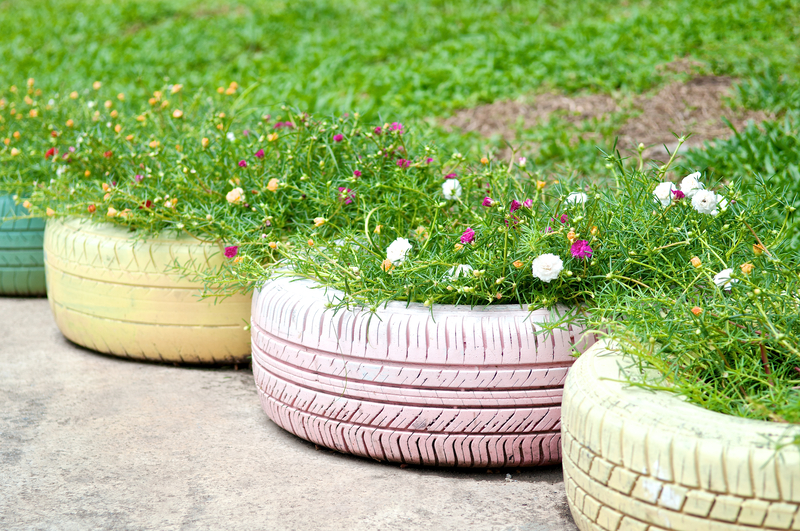Responsible Ways to Say Goodbye to Pots and Pans
Are you staring at a pile of old cookware, not sure what to do next? If you're upgrading your kitchen collection or simply clearing out some clutter, it's essential to dispose of your old pots and pans responsibly. Throwing them in the trash isn't always the best choice. In this comprehensive, SEO-optimized guide, we'll explore responsible ways to say goodbye to pots and pans while minimizing environmental impact and maybe even helping someone in need.

Why Is Responsible Disposal Important?
When old cookware is discarded improperly, it can contribute to landfill waste, pollute the environment, and waste valuable resources. Nonstick pans may contain chemicals, such as Teflon (PTFE), that are not suitable for standard recycling. Meanwhile, metals in pots and pans can be incredibly useful if properly recycled. Responsible disposal not only protects the planet but also offers opportunities to support charitable organizations or provide materials for creative upcycling.
Before You Say Goodbye: Assess the Condition
First, assess the condition of your cookware. This step is crucial in determining the *most suitable* farewell method. Ask yourself:
- Is your pot or pan still functional? (No cracked handles, nonstick coating mostly intact, no deep dents?)
- Does it need just a little TLC? Sometimes a thorough cleaning or simple repair can extend its life.
- Is it beyond practical use? Warped, badly scratched, or unsafe to use?
Once you've answered these questions, you can select the best responsible method to say your goodbyes.
1. Donate Gently Used Cookware
Charities and Shelters
If your pots and pans are still in good working order, donating is one of the kindest, most responsible options. Many charitable organizations and shelters accept gently used cookware for people in need. Consider:
- Local Homeless or Women's Shelters: Many shelters need cooking essentials for their residents. Call ahead to check their policy on cookware donations.
- Thrift Stores: Organizations like Goodwill or Salvation Army often accept pots and pans in usable condition.
- Food Pantries: Some local pantries distribute cookware to families.
Community Initiatives
Neighborhood "Buy Nothing" groups or online marketplaces (like Facebook Marketplace or Nextdoor) often have people seeking affordable home items. Giving away cookware locally not only helps your community but also extends the life of the items.
2. Recycle Old Pots and Pans
Scrap Metal Recycling
Metals like stainless steel, copper, and aluminum are valuable and recyclable. Here's how to recycle responsibly:
- Contact Your Local Recycling Center: Ask if they accept cookware and whether you need to separate materials (handles vs. pan body).
- Remove Non-Metal Parts: Take off plastic or wooden handles and lids, if possible. This helps the recycling process.
- Scrap Yards: Many scrap metal recyclers will gladly accept old pots and pans, sometimes even those with damage or worn coatings.
- City Collection Programs: Some municipalities host metal recycling days or accept cookware with bulk/metal recycling pickups.
*Pro tip*: Even if your pots are rusty or the coating is coming off, the base metal is still valuable for recycling.
Special Handling for Nonstick and Ceramic
Nonstick (Teflon-coated) and ceramic-coated pans generally cannot go in curbside bins. Specialized recycling facilities may be needed. Inquire about dedicated drop-off locations or programs through the original manufacturer or local waste management. Some brands, like TerraCycle, offer special mail-in recycling partnerships for hard-to-recycle cookware.
3. Upcycle and Repurpose
Creative Reuse for Home and Garden
Old pans can get a second life with a little creativity. Upcycling doesn't just reduce waste--it adds a unique, personal touch to your home.
- Planters: Turn old pots or colanders into quirky garden planters. Just drill a few extra drainage holes and add some soil and greenery.
- Storage Solutions: Use a deep pot to organize cleaning supplies, or a shallow pan to hold keys and wallets near the entryway.
- Pet Food Bowls or Bird Baths: Metal pots and pans make sturdy dishes for pets or outdoor bird baths.
- Wall Art and Decor: Old pans can become clocks, chalkboards, or rustic kitchen wall decor after some cleaning and paint.
*Tip*: Get your kids involved in these upcycling projects for a fun, sustainable lesson!
4. Participate in Manufacturer Take-Back Programs
Many cookware brands offer take-back or recycling initiatives, especially for their own products. Check whether your manufacturer has a "Trade-In or Take-Back" program. Some brands may reward you with a discount on new purchases or responsibly recycle old goods for you.
- Check the Brand's Website: Look for pages on sustainability or recycling.
- Email Customer Service: Inquire about what kind of cookware is eligible for return.
- Shipping Programs: Some brands provide free shipping labels to send your used pots and pans back to them.
This is a particularly responsible way to say goodbye to pots and pans made with unique or mixed materials, since the manufacturer knows exactly how to process them.
5. Avoid These Common Disposal Mistakes
- Don't Throw Pots and Pans in the Regular Trash: This wastes valuable resources and can lead to unnecessary landfill buildup.
- Don't Put Nonstick or Ceramic-Coated Cookware in Household Recycling: Most municipalities' bins cannot process these items and will send them directly to landfill if included.
- Don't Donate Unsafe or Damaged Pots: If handles are loose or coatings are flaking, it's better to recycle or repurpose.
How to Dispose of Pots and Pans with Special Materials
Cast Iron
Cast iron is highly sought after by both cooks and recyclers. If it's rusty but uncracked, consider seasoning and restoring it. If you must part ways, most scrap metal yards will accept cast iron pans.
Aluminum and Stainless Steel
Both metals are highly recyclable. Be sure to separate any non-metal components and check with your local recycling program for drop-off procedures.
Copper
Copper cookware is valuable--both for collectors and for recycling. Damaged but pure copper items can often be sold at a premium to scrap metal dealers, and sometimes artisanal metalworkers will repurpose them.
Sustainable Alternatives and Future Choices
As you say goodbye to pots and pans, consider investing in eco-friendly cookware for your next purchase. Look for:
- Recyclable Materials: Choose pans made of stainless steel, cast iron, or 100% aluminum.
- Longevity: High-quality cookware lasts longer, reducing waste and expenses.
- Repairable Design: Detachable handles and replaceable parts make repairs easier.
- Brands with Take-Back Programs: Support manufacturers committed to a circular economy.
This way, your cookware disposal becomes a one-time event, not a recurring headache.
Frequently Asked Questions
Can I put old pots and pans in the regular recycling bin?
No. Most household recycling programs cannot process cookware due to mixed materials and attachments. Take them to a designated scrap metal recycler instead.
Are nonstick pans really hazardous to recycle?
Nonstick coatings (like Teflon) can release harmful chemicals when processed. Specialized recycling is necessary. Never put them in curbside bins.
What about glass lids?
Many glass lids are made from tempered glass, which is not accepted by typical glass recycling. Check for special drop-off sites, or repurpose them as trays or craft supplies.

Summary of Responsible Ways to Say Goodbye to Pots and Pans
- Donate: If usable, help someone in need.
- Recycle: Scrap metal centers are the best option for damaged or unusable all-metal cookware.
- Upcycle: Get creative and repurpose for home or garden use.
- Manufacturer Take-Back: Some brands offer specialized recycling programs or trade-ins.
- Avoid landfill: As much as possible, keep pots and pans out of the trash.
The Bottom Line
Choosing responsible ways to say goodbye to pots and pans preserves resources, supports your community, and protects our planet. With options like donation, recycling, upcycling, and manufacturer take-back programs, there's a sustainable solution for every piece of cookware. The next time you update your kitchenware, make disposal part of your eco-friendly lifestyle!
Ready to part ways with your old cookware? Start local, ask questions, and prioritize reuse and recycling over landfill any day!
